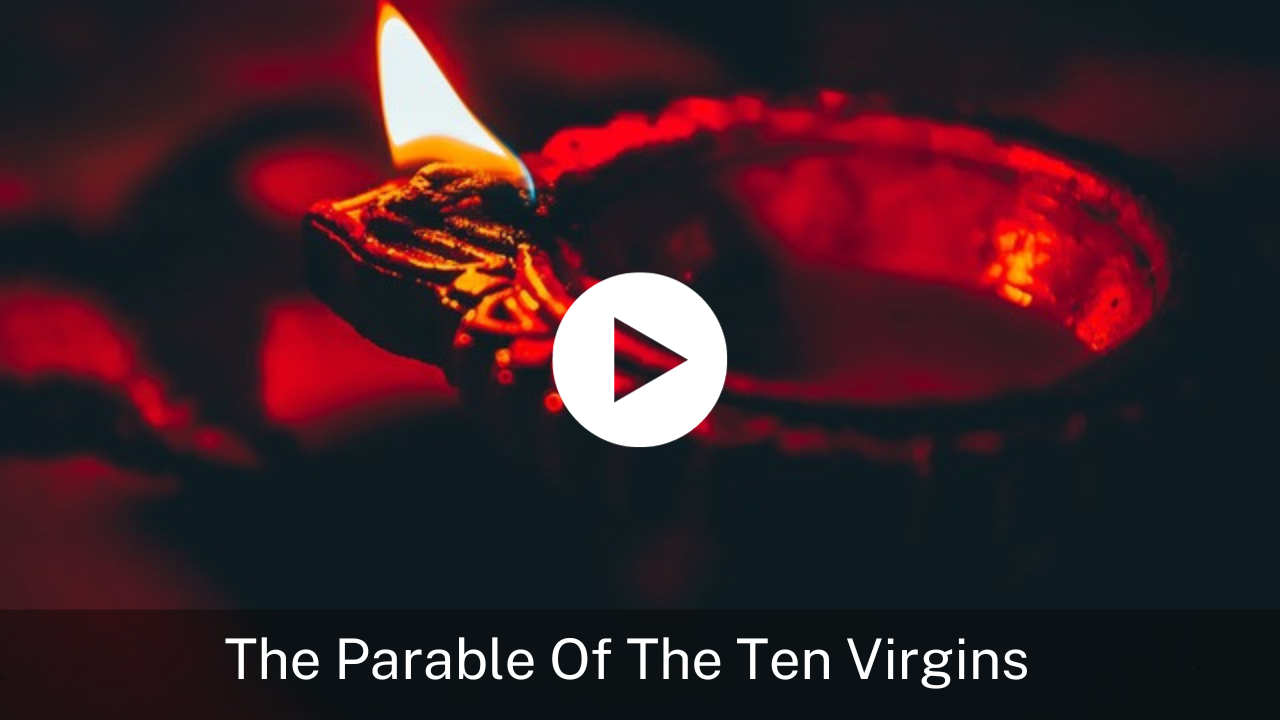The Parable of The Ten Virgins

One prominent question regarding the ten virgins in the Bible is, “Were they all Christians?” There are two opposing views on this parable, and one view has two end results.
The first view states that all of the virgins were Christians but half were not prepared, or were not living Godly lives. For this reason, they were denied entrance into heaven. The alternate, end result of this view is that the five foolish virgins may still go to heaven but will be excluded from the rapture. If it refers to the rapture, then these foolish virgins would still be saved, but would have to endure the Tribulation.
The entire reason for this first view, which believes all ten were saved, is because of the use of the word virgin. Some contend that the word virgin must be a synonym for Christian. Their point is, “Why would God call an unsaved person a virgin, which symbolizes purity?” This is a strong point but can we hang the weight of the entire parable on the definition of one word, and dismiss things Jesus said about the foolish virgins?
The second view is that the five foolish virgins were not born again but simply religious, only claiming to be saved. They were still referred to as virgins because they were church attendees. The main reason for the belief that five were not Christians is found in verse eleven where Jesus said, “I do not know you.” Jesus also said in John 10:27, “My sheep hear My voice and I know them.” If Jesus doesn’t know them, and yet He knows His sheep, then it is clear they were not His sheep, thereby they were not saved.
This is similar to Matthew 7:21-23 where Jesus said, “Not everyone who says to Me, ‘Lord, Lord,’ will enter the kingdom of heaven, but he who does the will of My Father who is in heaven will enter. I will declare to them, ‘I never knew you; depart from Me, you who practice lawlessness.”
In addition, the foolish virgins didn’t have any oil. Does the oil represent the Holy Spirit? Most believe so. Could someone who doesn’t have the Holy Spirit be saved?
Also, the parable does not say that their oil ran out but instead that they took no oil. Does that mean that they had oil but didn’t take it with them? Could it be they never had any oil in the first place?
Perhaps the oil only represents steadfastness in their faith. Some say they had oil but it ran out during the waiting for Jesus, thereby they had no long lasting faith as a true believer. The oil would then represent a true enduring salvation. They endured for a while but then ran out, and once Jesus came they realized they were not ready.
This is similar to what Jesus said in the parable of the seed sown on stony ground in Mark 4:16. They received the word with gladness, and endured for a time, but then when affliction came they were offended.
To keep it simple, most commentaries state that the five foolish virgins were not Christians and had no oil, which does represent the Holy Spirit.
The Believer’s Bible Commentary, page1297 reads, “The foolish virgins represent those who profess to hold the Messianic hope but who have never been converted and thus do not have the Holy Spirit.”
Another question is, “If they didn’t have the Holy Spirit and weren’t saved, then how did their lamps burn, even for a short time?” Some commentaries point out that the lamps they used at that time had a wick, which when lit would burn for a few minutes but then would go out. They had no oil to keep it burning.
- Exodus 27:20 says, “And you shall command the children of Israel, that they bring you pure olive oil beaten for the light, to cause the lamp to burn always.”
- Job 21:17 says, “How often is the lamp of the wicked put out?”
It’s the oil keeping that keeps the lamps burning always. The foolish ones took no oil, or didn’t have the endurance to wait for the return of Christ, or they never had any oil to start with.
I encourage you to pick up your Bible and read the entire parable in Matthew 25. The belief that the foolish virgins were saved hangs fully on the use of the word, virgin but it remains unclear. I believe the overall meaning of the parable is for all Christians to be ready for our Lord’s return, and indicates that those who only have a form of godliness will not enter heaven.
In regard to the rapture, I do not believe Christ will leave 50% of genuine believers behind. The 50% that are left will most likely be those who claim to be religious, and only appear to be part of the Body of Christ.
Matthew Henry writes on page 1746, “Sincere Christians are the wise virgins, and hypocrites the foolish ones, as in another parable they are represented by wise and foolish builders…they have a lamp of profession in their hands, but have not in their hearts…”
Then he said of Christians, “Our great duty is to watch, to attend to the business of our souls with the utmost diligence and circumspection. Be awake.”
You can make your own decision regarding the virgins. We learn from this parable that our associations won’t save us. Being a member of a church won’t save us. Salvation takes a personal decision on our part, and a relationship with our Creator. We will all stand alone before God and give an account of our lives. All will be revealed on Judgment Day.
Copyright 2007-2023 Soul Choice Ministries – All Rights Reserved
By Bill Wiese, author of 23 Minutes in Hell
